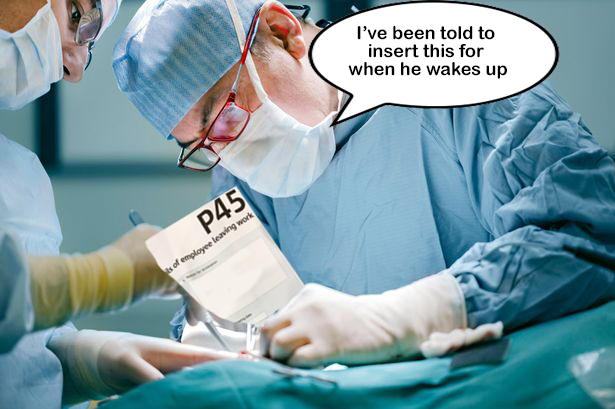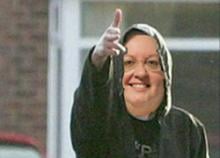A firm which sacked a paralegal for poor performance while he was suffering from inflammatory bowel disease breached the law, an employment tribunal has ruled.
RLK Solicitors, a small firm based in Birmingham, terminated Mr D Russell's employment at the end of a four month probationary period while he recovered from emergency surgery.
Two weeks after Russell started work at the firm in July 2017, he began to suffer from severe stomach pain, bloody diarrhoea and the need to visit the loo every 30 minutes.
Russell had been diagnosed with irritable bowel syndrome a year earlier, and initially tried to cope with the resurgent symptoms while remaining at work. But in August he was forced to take three days off sick, and his GP diagnosed him with viral gastroenteritis.
To Russell's increasing concern, his symptoms continued when he returned to the office. Despite "crippling abdominal pain as his muscles contracted", and constant tiredness due to lack of sleep, which made it difficult for him to concentrate on his work for any sustained period, the paralegal carried on working. He "was anxious not to miss any more work", although he described being "uncomfortable and embarrassed about his constant need to visit the bathroom".
Russell said he wanted to impress the firm so it would award him a training contract, so he attempted to manage his symptoms with over the counter diarrhoea medication and kept the seriousness of his situation hidden from the firm.

The partners flagged issues with the long time it was taking Russell to complete tasks, and with errors in his draft documents. Satish Jakhu, RLK's Managing Partner, said that in hindsight "it was a fair assumption to make" that Russell's performance was impeded by his illness, which Jakhu was not aware of at first.
But on 17 September 2017 Russell's condition deteriorated. He collapsed at home, and became violently sick when he attempted to consume food or liquid. He was referred to a specialist and diagnosed with inflammatory bowel disease, a far more serious condition than IBS or viral gastroenteritis. Russell texted the office from hospital to explaining that the problem might be serious, but that he expected to be able to return to work by the middle of October. Now aware that he had a severe condition, the firm extended his three month probationary period for an extra month.
On 28 September his health worsened and he was rushed to hospital for urgent surgery due to a risk to his life. Part of his bowel was removed during a seven hour operation and he was given an ileostomy. Because Russell was too ill to speak, his mother kept the firm informed. On 6 October she informed RLK that his recovery was expected to take six weeks.
Nine days later, RLK sacked Russell by email. He replied pleading with them to reconsider, writing “I can confirm that my condition is now being managed so I will be able to perform my duties better than was the case in the lead up to my being hospitalised”. They refused, telling him, "We do not consider that we discriminated against you due to your absence but that we made a decision based on your performance to date”.
The tribunal rejected RLK's argument that Russell's poor performance was not caused by his disability. It said Russell "was seriously impacted by his illness whilst working at the respondent" for almost the entire time he was there, and the quality of his work "was bound to have been detrimentally affected by his disability".
The tribunal concluded that Russell's sick leave did play a part in Jakhu's decision to sack him, and that RLK failed in its duty to make reasonable adjustments for his disability by not giving him the chance to retain his job and explain how his illness affected his performance. In doing so, RLK discriminated against Russell as a result of his disability.
The remedy for Russell's successful claims will be determined at a future hearing. In the meantime, RLK may wish to seek inspiration from Reed Smith's sicky policy.














Comments
351
326
Somewhat surprising that Jakhu took this approach, as a man who should understand the benefit of second chances...
https://www.business-live.co.uk/news/local-news/birmingham-lawyer-suspended-breaching-rules-3964680.amp
314
371
Very detailed description of his illness
314
376
Unbelievable. The attitude of these people is like something from the 19th century.
306
343
Should have done what London accountancy firm did to me - after multiple ops, nearly a year out (on "statutory sick pay" = no money, in massive debt), they waited 3 months AFTER I'd returned work to sack me.
I knew they weren't a charity, but thought perhaps generating 6 figures in billings during my time there may have bought me some consideration...